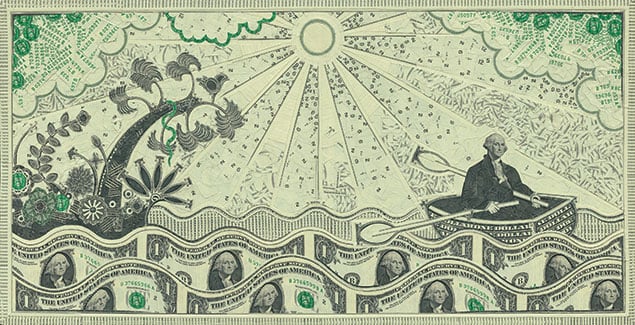Washington investors are different. While most investors deal only with valuations and risk, local residents have hurdles that are more cultural and psychological. This is a competitive town, after all, full of people with robust self-opinions and an unquenchable drive to do better than their neighbors.
Outside Washington, everyone knows it’s impolite to discuss money, religion, and politics. Yet in this city obsessed with status and power, investments are the stuff of cocktail-party conversation—and shame on those who aren’t keeping up.
“I don’t give a damn about market averages,” one investor told me. “I need to do better!” When asked why, he said, “Because my brother-in-law was an early employee at AOL and cashed out with $17.5 million. It’s all my father-in-law ever talks about. It’s all my wife’s sister ever talks about. And my brother-in-law is a complete doofus. Being a partner in a serious law firm with a Columbia JD doesn’t mean crap.”
Whether it’s tales of golf partners whose stocks only go up or the day trader who has found a foolproof path to financial freedom, stories of one-upmanship abound. Better isn’t good enough; better also has to be easier and less risky—and above all, out of reach to the ordinary Joe.
Type-A personalities do well in Washington. They prosper and earn a good living. Paradoxically, while those with relentless drive and a tireless work ethic make the best earners, type A’s make the worst investors. Good investing requires patience, discipline, and a capacity to ignore crowd-think. In many ways, successful investing embodies more type-B traits. The best investors buy straw hats in January and snow shovels in July when they’re on sale.
The personification of successful investing is Warren Buffett. Known for dogged research, long-term holding periods, and an aversion to expensive technology stocks, the old boy seems to do all right with his portfolio.
Buffett would not do well in Washington. He travels without an entourage, for one thing. When a CEO friend of mine flew to Omaha to meet with him a couple of years ago, he saw Buffett pull up to his corporate jet in a blue Ford sedan. He was alone and wearing a golf shirt. The CEO told his staff to remain on the plane, removed his jacket and tie, and walked out alone to drive off with Buffett at the wheel.
Washington’s elite have to meet the minimum requirements of an impressive house, a powerful job, private schools, country-club memberships, jazzy cars, and blossoming wealth. Talk about pressure. In 1999, the S&P 500 Index rose by nearly 20 percent, while the technology-laden NASDAQ climbed by more than 80 percent. In early 2000, a retiree from Baltimore called to fire my firm for failing to achieve those 80-percent returns in his retirement portfolio. “My son the stockbroker thinks you’re dumb, but I think you just don’t get it,” he said. I argued that a 100-percent exposure to tech stocks would have been reckless. I learned later that he moved his account to his stockbroker son and, according to a different son, “took a bath”—then considered legal action against his son.
While a lot of Washingtonians have enjoyed great investment returns, it’s hard to invest patiently in a city where the competition to keep up is everywhere. It’s easy to lose sight of the things that matter and to misjudge risk. The best advice is to remember the rules of the fish market: Ignore the screaming and yelling, and pay attention to the price of the fish.
Michael Farr (mfarr@farrmiller.com) is CEO of the DC investment advisory firm Farr, Miller & Washington.



















